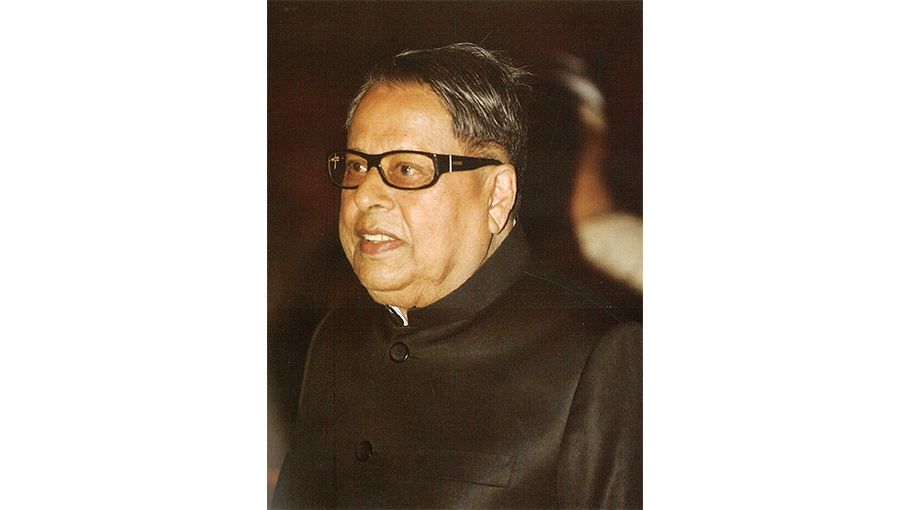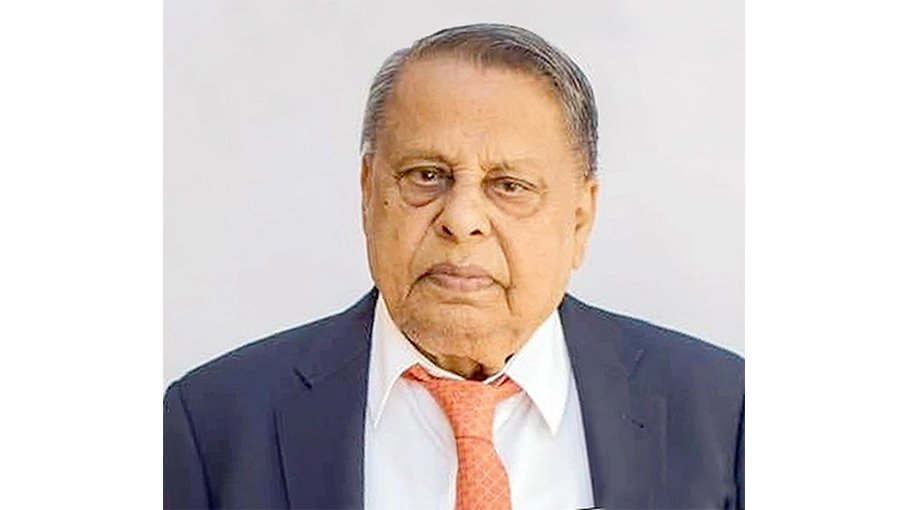You will remain a source of inspiration

Some people are born to do something great. Zainul Haque Sikder, a legendary figure in building social, political, educational and healthcare institutions in Bangladesh, was one of such people. He was a pioneer in promoting the country’s trade, commerce and financial institutions.
Most courageous political person and a valiant freedom fighter, Zainul Haque Sikder was among those who were the first to protest against the brutal killing of Father of the Nation Bangabandhu Sheikh Mujibur Rahman in August 1975. Despite untold odds and obstacles following the August tragedy, Zainul Haque Sikder expanded his ventures at the international level. His worthy children have achieved a great success at home and abroad in organising multi-dimensional business and commerce.
Zainul Haque Sikder was one of the few personalities who earned a great reputation as a prominent businessman, industrialist, social worker and philanthropist not only in Shariatpur district, but also in the whole of Bangladesh. Zainul Haque Sikder was born in Assam, India on 12 August, 1930 to Mokfar Uddin Sikder and Zarina Sikder. His father was first a forester and later a well-known contractor. Zainul, in his teens, embarked on timber business without informing anyone with only 100 rupees he took from his father when he was a seventh-grader. He used to buy wood and retail them on the river bank. One of the most successful entrepreneurs later, Zainul Haque Sikder commenced his own business from scratch this way. After the partition in 1947, he moved to then East Pakistan with his family. Though he was born in Assam, his ancestors were living in South Bengal. Because of the roots, he later developed Kartikpur, a remote village in Bhedarganj in Shariatpur district, into a city-like area on his own efforts. What does the village lack? He established schools, colleges, madrasas, mosques, a medical college and a university in that village by dint of his own efforts.

Zainul Haque Sikder was of dashing type since childhood. Despite having extraordinary talent, he did not have a flair for formal studies. His father sent him to Faridpur because of his daring nature. He passed the matriculation examination in 1948 from Barisal center. After the result, he sought Tk 50,000 from his father to buy a house at Gandaria in then East Pakistan. Zainul Haque Sikder fled the house with two gold coins, his own camera and four rings on his hand as his father refused to pay the money. After coming to Dhaka, he first went to an uncle named Amir Hossain Khan, who was the inspector general of police, for a job. When he was offered a job as a sub-inspector, he refused and decided to try his luck in the army. But meanwhile, the time for recruitment of commissioned officers was over. Frustrated, he was coming back. However, finally, he got a chance to join the army showing his skills in football to a major named Mohammad Ahmed. While in the army, he suddenly thought of going to London and got his passport and secured a visa. There he got a job for 14 pounds a week. However, he again faced his father’s disapproval and in 1956, his father forcibly married him off. His mother too did not want him to go to London. Zainul Haque Sikder served the Army for 12 years. In 1957, he met a strange fakir (Sufi saint). Though he did not believe in Sufi saint, he went to him at the insistence of a colleague. He did not believe in the words of the Sufi saint at first, but he found the saint’s predictions started to be true later in his life. He started a car business on the advice of the Sufi saint and did not have to look back though there were some obstacles in his way. During the Pakistan period, he started a truck business besides contracting. Zainul Haque Sikder became the owner of four houses and a car as well before the Liberation War. Despite having so much wealth, he actively participated in the Liberation War. He went to his village Kartikpur in April 1971. Earlier, when Sector-2 Commander Khaled Mosharraf asked him to go to Dhaka and fight, Zainul Haque Sikder did not agree. He formed daring Akkas Bahini comprising retired members of the law enforcement agencies and people from different walks of life. The Akkas Bahini played a vital role in freeing several police stations in Shariatpur from the Pakistan troops at the time.
After the independence, he started the same business again on the advice of his well-wishers though he was initially unwilling to do it. He, however, could no longer concentrate on the country after the death of Bangabandhu Sheikh Mujibur Rahman, the architect of independence, in 1975. Going back to the United States, he dedicated himself to business there and within a few years, he achieved tremendous success. Meanwhile, Zainul Haque Sikder and his wife Monowara Sikder (now the honorable chairman of National Bank) were blessed with five sons and three daughters, who are now established in their respective fields.
Zainul Haque Sikder became a Director of National Bank in 1983. He launched various businesses in Bangladesh in sectors like banking, real estate, medical, education, aviation, residential hotel, power generation and garment. At present, Sikder Group operates various businesses in Bangladesh, Thailand, Singapore, the UAE, Poland, France and the USA.
The life of Zainul Haque Sikder, an enterprising man, a social entrepreneur, industrialist and banker, was flecked with sun and shower and a long struggle.
This unyielding man is still alive among us as a symbol of a successful man. A brave, outspoken and self-made man, Zainul Haque Sikder was not only an education entrepreneur, but also a patriotic valiant freedom fighter. With his own funds, he has set up a modern full-fledged private university in a remote area of Shariatpur, two medical colleges -- the country's first women's medical college in the capital and the other at Madhupur in Shariatpur -- for human development and welfare. He has also established 10 schools and colleges and over 50 mosques and madrasas in his area and in Dhaka.



